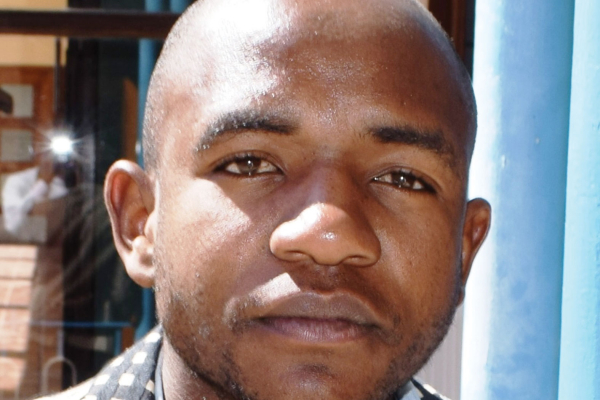
The urge to highlight the follies of the planet often inspires a writer. In My Passion: My Voice, emerging poet Robert Mugobi employs verse to share life’s experiences, as he seeks to motivate his audience towards a Christian lifestyle.
Title: My Passion: My Voice Author: Robert Mugobi ISBN: 978-0-7974-8375-0
By Beniah Munengwa
Christian poetry is grounded in the Christian faith, carving human lifestyles towards moral functionalities.
As the title suggests, the anthology is a collection of poems inspired by the author’s passion.
The headline poems, One of Praise, 21st Century Church and Sweet Sin highlight the poet’s major concerns.
In particular, 21st Century Church depicts the rot that unceremoniously characterise the modern church, as it is filled with a foul scent of sin.
While in the church there has been sin, the traditional world has not been spared. In a dialogue with culture, the persona in the poem, Lost Culture, says, “For years I’ve stayed with my people/They have been keeping me/But they don’t like me anymore.”
- Chamisa under fire over US$120K donation
- Mavhunga puts DeMbare into Chibuku quarterfinals
- Pension funds bet on Cabora Bassa oilfields
- Councils defy govt fire tender directive
Keep Reading
The anthology, like a news flash, decodes the goings on of a society in motion. Zimdancehall is not spared in the piece, New Genre, in which the poet says, “A town where every youth is an artiste/Where every youthful singer is a Zimdancehall artiste.”
In line with his perspective of bemoaning social ills, Mugobi critiques the role of Zimdancehall by calculating that it is limited to mere “dissing” and self-praise, hence the genre pushes art towards mediocrity.
The anthology captures the persona’s trouble with finding the self in the face of life’s challenges.
Like in most people’s lives, childhood dreams are rarely realised. Not Just a Hobby captures this reality.
The persona recounts, “May day may day, programmer down’ I shouted.”
Plea for Control captures the lamentation of a youthful person who has lost touch with controlling his life.
It probes, “Is my life still mine?/Control over it I have lost,/Dictated steps I take,/Like a robot.”
The picture of disillusionment is reflective of the emotional pain and suffering that is haunting African youths, most of whom find themselves unemployed despite the vastness of their talents.
From my reading of the anthology, there is evidence that as a product of the poetic voice, but the project ended up being presented as an unintentional prosaic dialogue between the reflective self and a troubled society.
However, such composition makes perfect literary relish for those who find intricate, complex and riddled poetry impenetrable.
This also suits well the poet’s intention to flex word play muscles in a way that leaves the audience with a moved moral.
But to reduce the anthology to a mere Christian exhibition central to human moral would be ill-conceived. Politics coupled with key tenets of hope and survival characterise the anthology.
Distant from the Christian faith is the poem Zimbabwe Will Be Free Again. This poem recounts the moments that brought Zimbabwe to independence.
The poem, however, suggests through that title that freedom has not yet been attained, but will be achieved in the continuum.
In Almost, the poet speaks of their lingering relationship with underachievement and laments present circumstances. It carries the lines, “One, two, three, four…/I’m counting,/Infinite are the chances,/I saw slipping through my hands/.”
This poem leaves the non-believer in doubt of the efficiency of relying on the Christian faith, for how can a man with such a celebrated force behind him fail to at least be gifted with the charm and tact to convert all his opportunities into fortune and not disappointment?
The anthology apart from being based on biblical teachings also draws from the laws of the jungle.
The poem Another Scripture Collection reflects, “When life gets tough for me/I look at the lion/From the lion I draw lessons, I study how fear is not found in its heart.” What is clear in this project is a yearning to live in a joyful, progressive and yet morally upright society.
The anthology does not only present a world that is in wretchedness but also filled with the hope personified by Christ to the believer.
The poet admits, there is still more to learn in his craft and also that his poems are open ended, as every poem shall continue in a collection soon to come.
To have young poets gathering the momentum and courage to pen anthologies is commendable in a country with a high literacy rate like Zimbabwe. But writing about morality stands out as our society always seems to look better without a tainted and broken social fabric.
Beniah Munengwa writes in his own capacity. He can be contacted through email on [email protected]











